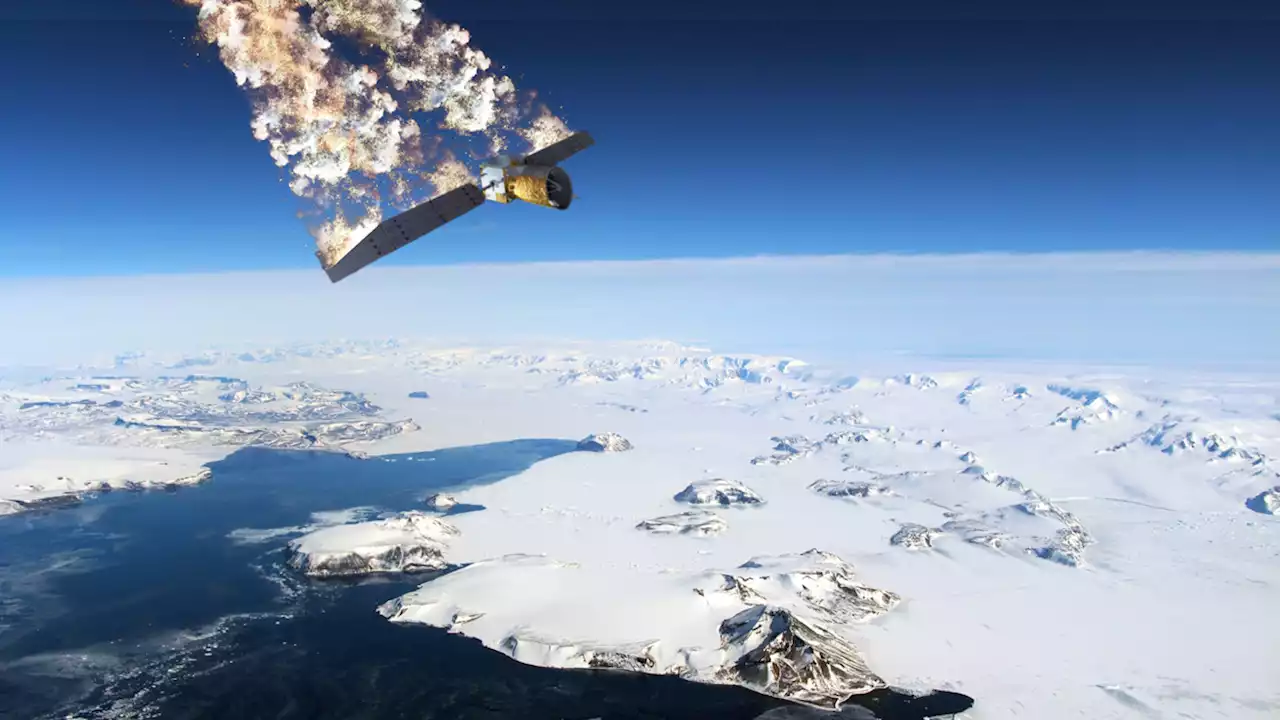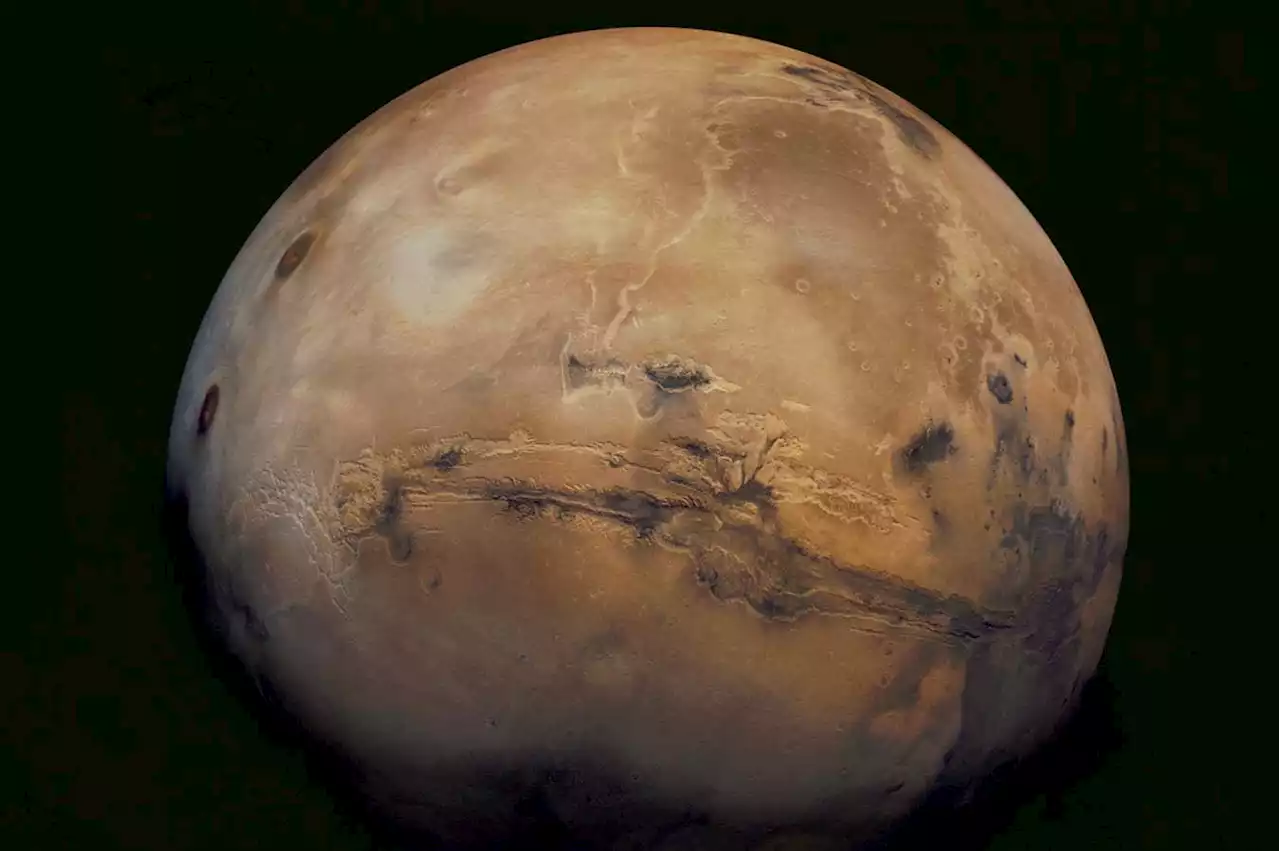Mars used to have wet and dry seasons similar to ones on Earth
Ancient Mars had seasonal weather similar to Earth’s, with alternating wet and dry seasons, according to mud patterns discovered by NASA’s Curiosity rover. These seasonal cycles may have helped form some of the more complex building blocks for life, such as RNA and basic proteins.in the form of lakes and rivers, but it was unclear whether these came from one-off events, such as meteor impacts or volcanic eruptions melting ice, or whether they were tied to a more global weather cycle.
and minerals. Some of this material would have been washed away, but a more resilient mix of mud and rock would have remained, forming the ridges. “Only a seasonal climate – something with high frequency, geologically speaking – can produce those cracks in the mud that got fossilised,” says Rapin.Voyage across the galaxy and beyond with our space newsletter every month.
These rock formations appear to be about 3.6 billion years old. This is around the time we know that life first emerged on Earth, which means there should have been enough time for life to have emerged on Mars, too.
United States Latest News, United States Headlines
Similar News:You can also read news stories similar to this one that we have collected from other news sources.
 Curiosity Overcomes 23-Degree Slope to Reach Crater FieldThe Mars Curiosity rover successfully navigated a challenging 23-degree slope to explore a fascinating field of craters in the Jau region on Mount Sharp.
Curiosity Overcomes 23-Degree Slope to Reach Crater FieldThe Mars Curiosity rover successfully navigated a challenging 23-degree slope to explore a fascinating field of craters in the Jau region on Mount Sharp.
Read more »
 Mars helicopter Ingenuity captures Perseverance rover during 54th flightNASA's Ingenuity Mars helicopter took a photo of the Perseverance rover during its 54th flight on August 3, 2023. Unlike previous flights, this one was not for scouting purposes and lasted only 24 seconds, reaching a maximum altitude of 16 feet without covering any ground laterally.
Mars helicopter Ingenuity captures Perseverance rover during 54th flightNASA's Ingenuity Mars helicopter took a photo of the Perseverance rover during its 54th flight on August 3, 2023. Unlike previous flights, this one was not for scouting purposes and lasted only 24 seconds, reaching a maximum altitude of 16 feet without covering any ground laterally.
Read more »
 NASA’s Mars Helicopter Captures Image of Perseverance RoverNASA’s Mars helicopter, Ingenuity, captured an aerial image of the Perseverance rover during its latest flight at the end of last week. The aircraft and rover arrived together on the red planet in February 2021, and since then both have been operating inside the Jezero Crater, a dried-up lake that scientists believe could contain evidence of ancient life.
NASA’s Mars Helicopter Captures Image of Perseverance RoverNASA’s Mars helicopter, Ingenuity, captured an aerial image of the Perseverance rover during its latest flight at the end of last week. The aircraft and rover arrived together on the red planet in February 2021, and since then both have been operating inside the Jezero Crater, a dried-up lake that scientists believe could contain evidence of ancient life.
Read more »
 Sustained wet-dry cycling on early MarsObservations by the Curiosity rover at Gale Crater on Mars indicate that high-frequency wet-dry cycling occurred on the early Martian surface, indicating a possible seasonal climate conducive to prebiotic evolution on early Mars.
Sustained wet-dry cycling on early MarsObservations by the Curiosity rover at Gale Crater on Mars indicate that high-frequency wet-dry cycling occurred on the early Martian surface, indicating a possible seasonal climate conducive to prebiotic evolution on early Mars.
Read more »
 Single Aunt Study Finds 100% Of Cats Angels On EarthAccording to a new study published in the Journal Of Itty-Bitty Little Paws, single aunt researchers confirmed Monday that 100% of cats are angels on earth.
Single Aunt Study Finds 100% Of Cats Angels On EarthAccording to a new study published in the Journal Of Itty-Bitty Little Paws, single aunt researchers confirmed Monday that 100% of cats are angels on earth.
Read more »
 Scientists reconstruct Aeolus satellite's fiery fall to Earth from spaceThe wind-measuring satellite reentered the atmosphere over Antarctica burning up far from population centers. Earth as far away from population centers as possible as up to one quarter of the satellite was expected to make it all the way down to the surface.
Scientists reconstruct Aeolus satellite's fiery fall to Earth from spaceThe wind-measuring satellite reentered the atmosphere over Antarctica burning up far from population centers. Earth as far away from population centers as possible as up to one quarter of the satellite was expected to make it all the way down to the surface.
Read more »
